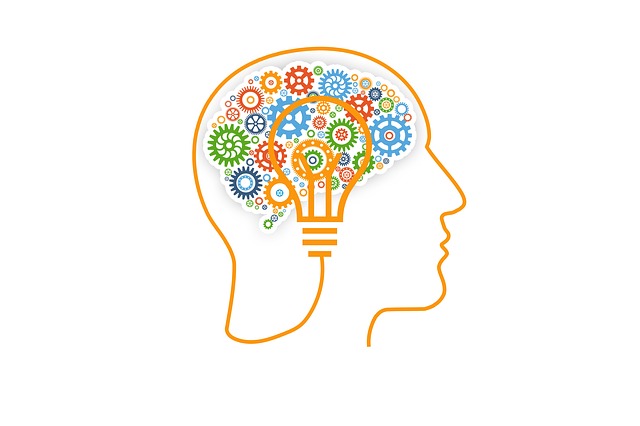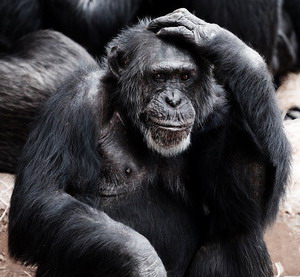 Over the last five newsletters, I have covered many different aspects of our physiology that directly affect how we think and feel. Much of this impact comes from the effect various physiological processes have on our production and regulation of the neurotransmitters in our brain. This week we are focusing in on ground zero for mental health; the brain. This is where it all happens. Sight, sound, kinesthetic sense, heat, cold, touch, vibration, all the senses stimulate various nerves that feed this information to the brain. It is in the brain that all this information is assembled and interpreted to give us our picture of the world. From this picture, we form our understanding of how things work and how we can participate with them. These experiences form our perspectives and beliefs about our relationships with life and what we have to do to survive and thrive.
Over the last five newsletters, I have covered many different aspects of our physiology that directly affect how we think and feel. Much of this impact comes from the effect various physiological processes have on our production and regulation of the neurotransmitters in our brain. This week we are focusing in on ground zero for mental health; the brain. This is where it all happens. Sight, sound, kinesthetic sense, heat, cold, touch, vibration, all the senses stimulate various nerves that feed this information to the brain. It is in the brain that all this information is assembled and interpreted to give us our picture of the world. From this picture, we form our understanding of how things work and how we can participate with them. These experiences form our perspectives and beliefs about our relationships with life and what we have to do to survive and thrive.
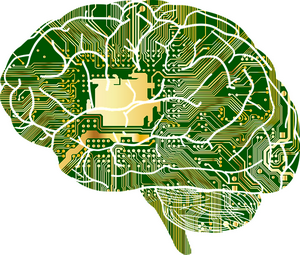 As you might guess, problems can arise within the brain itself that can disrupt the formation and clearance of the necessary neurotransmitters that form the actual connections for how we feel. Sometimes the issue is actual genetics as different folks are born with different abilities to make the enzymes that create the various transmitters. Other times formation is blocked by inflammation created by bad guy chemicals getting across the blood-brain barrier; the lining around brain blood vessels that acts like the lining in our intestines. It is only supposed to let certain things into the brain, but it can get leaky just like the gut lining can get leaky. Other times the protective immune cells in the brain, called glial cells, can go crazy and attack healthy brain tissue. This is common after a concussion and creates post-concussion syndrome symptoms. Still, other times the basic building blocks we need to form the neurotransmitters may be in short supply. The list goes on and on of all the ways the brain can get messed up. And when it gets messed up, it messes up how we think and feel.
As you might guess, problems can arise within the brain itself that can disrupt the formation and clearance of the necessary neurotransmitters that form the actual connections for how we feel. Sometimes the issue is actual genetics as different folks are born with different abilities to make the enzymes that create the various transmitters. Other times formation is blocked by inflammation created by bad guy chemicals getting across the blood-brain barrier; the lining around brain blood vessels that acts like the lining in our intestines. It is only supposed to let certain things into the brain, but it can get leaky just like the gut lining can get leaky. Other times the protective immune cells in the brain, called glial cells, can go crazy and attack healthy brain tissue. This is common after a concussion and creates post-concussion syndrome symptoms. Still, other times the basic building blocks we need to form the neurotransmitters may be in short supply. The list goes on and on of all the ways the brain can get messed up. And when it gets messed up, it messes up how we think and feel.
 Slowly, over the last several weeks, I have been building the awareness that how we think and feel is tremendously manipulated by all sorts of imbalances in our body and diet. Beginning with my generation, social forces laid the foundation for mental health as a matter for psychology and psychiatry. The basic understanding that mental health requires there first be physical health has been forgotten or disregarded. The one area that has remained is the understanding of the role of our neurotransmitters in our mental health. Not to be overly obvious, but this understanding persists because profitable pharmaceutical interventions have been developed to alter the functioning of our neurotransmitters. All the things I have been discussing the last five weeks have not involved any significantly profitable interventions for any pharmaceutical companies, so there is no one to spend the dollars to mold government policy, fund research, and support media buzz to generate public awareness. Seriously, if people actually took personal responsibility for their health, entire sectors of our economy would collapse from lack of use.
Slowly, over the last several weeks, I have been building the awareness that how we think and feel is tremendously manipulated by all sorts of imbalances in our body and diet. Beginning with my generation, social forces laid the foundation for mental health as a matter for psychology and psychiatry. The basic understanding that mental health requires there first be physical health has been forgotten or disregarded. The one area that has remained is the understanding of the role of our neurotransmitters in our mental health. Not to be overly obvious, but this understanding persists because profitable pharmaceutical interventions have been developed to alter the functioning of our neurotransmitters. All the things I have been discussing the last five weeks have not involved any significantly profitable interventions for any pharmaceutical companies, so there is no one to spend the dollars to mold government policy, fund research, and support media buzz to generate public awareness. Seriously, if people actually took personal responsibility for their health, entire sectors of our economy would collapse from lack of use.
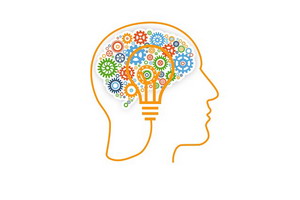 So what are these neurotransmitters I keep referring to? There are literally hundreds of neurotransmitters, but only a few have gotten popular attention. Those are serotonin, melatonin, L-dopa, dopamine, norepinephrine/ epinephrine, acetylcholine, glutamate, GABA, and oxytocin. Let’s do a brief rundown on each.
So what are these neurotransmitters I keep referring to? There are literally hundreds of neurotransmitters, but only a few have gotten popular attention. Those are serotonin, melatonin, L-dopa, dopamine, norepinephrine/ epinephrine, acetylcholine, glutamate, GABA, and oxytocin. Let’s do a brief rundown on each.
 Serotonin is made from the amino acid tryptophan. It is widely supported pharmacologically because low levels can cause depression, anxiety, sadness, hopelessness, and fatigue. Drugs that make serotonin signals last longer faking the appearance of more serotonin are super popular, such as Prozac, Paxil, Zoloft, Celexa, and many others. They are commonly prescribed for depression. People think of serotonin as giving them happiness. As we have seen with everything else in the body, there is a sweet spot for serotonin and too much can cause nausea, vomiting, sweating, tremors, and more.
Serotonin is made from the amino acid tryptophan. It is widely supported pharmacologically because low levels can cause depression, anxiety, sadness, hopelessness, and fatigue. Drugs that make serotonin signals last longer faking the appearance of more serotonin are super popular, such as Prozac, Paxil, Zoloft, Celexa, and many others. They are commonly prescribed for depression. People think of serotonin as giving them happiness. As we have seen with everything else in the body, there is a sweet spot for serotonin and too much can cause nausea, vomiting, sweating, tremors, and more.
 Melatonin is made from serotonin. It is known as the sleep inducer. It sets you up for falling asleep. It does not keep you asleep, just helps you fall asleep. It is also a super antioxidant for the brain and anti-inflammatory. It regulates our circadian rhythm and a bunch of other processes in our body. It even has a powerful effect on certain cancers in brief high doses.
Melatonin is made from serotonin. It is known as the sleep inducer. It sets you up for falling asleep. It does not keep you asleep, just helps you fall asleep. It is also a super antioxidant for the brain and anti-inflammatory. It regulates our circadian rhythm and a bunch of other processes in our body. It even has a powerful effect on certain cancers in brief high doses.
 Next, we have a synthesis chain of neurotransmitters that start with the amino acid tyrosine. The brain first turns it into L-Dopa; an essential transmitter for controlling our ability to move. Parkinson’s disease is basically a deficiency of L-Dopa. L-dopa is transformed into dopamine; the transmitter that gives us feelings of reward and pleasure. This is what gets kicked up when you use cocaine and sugar. In fact, it is the brain basis of all addictive behaviors. With more conversion dopamine is turned into norepinephrine and finally into epinephrine, also known as adrenaline. Norepinephrine is the most common transmitter in our sympathetic nervous system. It is a key regulator of our blood pressure. It is always being released into our system. Epinephrine or adrenaline, however, turns on our fight or flight system, hopefully only occasionally. Chronic stimulation really wears down the body as chronic stress.
Next, we have a synthesis chain of neurotransmitters that start with the amino acid tyrosine. The brain first turns it into L-Dopa; an essential transmitter for controlling our ability to move. Parkinson’s disease is basically a deficiency of L-Dopa. L-dopa is transformed into dopamine; the transmitter that gives us feelings of reward and pleasure. This is what gets kicked up when you use cocaine and sugar. In fact, it is the brain basis of all addictive behaviors. With more conversion dopamine is turned into norepinephrine and finally into epinephrine, also known as adrenaline. Norepinephrine is the most common transmitter in our sympathetic nervous system. It is a key regulator of our blood pressure. It is always being released into our system. Epinephrine or adrenaline, however, turns on our fight or flight system, hopefully only occasionally. Chronic stimulation really wears down the body as chronic stress.
 Our next duo is glutamate and GABA. Glutamate is the main neurotransmitter in our brain for stimulating activity while GABA, which is made from glutamate, is the main transmitter for slowing down and turning off activity. If the enzyme that turns glutamate into GABA is not working well, you get too much excitability such as in ADHD. Some people are thus very sensitive to glutamate in the diet as in MSG – monosodium glutamate, a salt of glutamate used in flavoring foods. GABA is a popular supplement for inducing calm, but unfortunately, it is usually worthless as the molecule is too large to cross into the brain unless you have a leaky blood-brain barrier. In fact, I use GABA to test for a leaky brain.
Our next duo is glutamate and GABA. Glutamate is the main neurotransmitter in our brain for stimulating activity while GABA, which is made from glutamate, is the main transmitter for slowing down and turning off activity. If the enzyme that turns glutamate into GABA is not working well, you get too much excitability such as in ADHD. Some people are thus very sensitive to glutamate in the diet as in MSG – monosodium glutamate, a salt of glutamate used in flavoring foods. GABA is a popular supplement for inducing calm, but unfortunately, it is usually worthless as the molecule is too large to cross into the brain unless you have a leaky blood-brain barrier. In fact, I use GABA to test for a leaky brain.
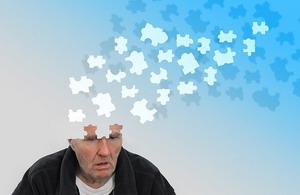 Now we are down to our last two popular neurotransmitters, acetylcholine, and oxytocin. Acetylcholine is the main neurotransmitter for thinking and memory. If your levels get low, your memory goes out the window and your brain moves like molasses. Too much acetylcholine and your brain blows up, and this is the basis of many commercial pesticides. Your brain makes this from choline (mostly found in egg yolk and liver) and is one of the big missing nutrients in a Vegan diet.
Now we are down to our last two popular neurotransmitters, acetylcholine, and oxytocin. Acetylcholine is the main neurotransmitter for thinking and memory. If your levels get low, your memory goes out the window and your brain moves like molasses. Too much acetylcholine and your brain blows up, and this is the basis of many commercial pesticides. Your brain makes this from choline (mostly found in egg yolk and liver) and is one of the big missing nutrients in a Vegan diet.
 Oxytocin is the famous Love Hormone. Its main purpose is to promote bonding between a new mother and her child, but it promotes all sorts of social and intimate bonding. Both men and women release oxytocin during orgasm. It is also released when you pet animals you love. It helps you counter the effects of stress on the brain but is inhibited by too much stress. A special effect of oxytocin is it induces labor in an expectant mother by triggering uterine contractions.
Oxytocin is the famous Love Hormone. Its main purpose is to promote bonding between a new mother and her child, but it promotes all sorts of social and intimate bonding. Both men and women release oxytocin during orgasm. It is also released when you pet animals you love. It helps you counter the effects of stress on the brain but is inhibited by too much stress. A special effect of oxytocin is it induces labor in an expectant mother by triggering uterine contractions.
 Every one of these neurotransmitters is made from specific amino acids, so low protein levels in your diet or anything that inhibits your proper digestion of proteins, like low stomach acid or poor pancreatic enzymes, can therefore block the production of these vital brain chemicals. As you saw, there are whole chains of synthesis for these transmitters, and every step in these processes requires co-factors such as zinc and B vitamins. Their manufacture requires lots of the chemical energy ATP made in our mitochondria, so a healthy energy pathway system is essential. As I said before, you have to be physically healthy in order to feel mentally healthy. No amount of counseling or therapy can help how you feel if your brain and body are not doing their jobs properly.
Every one of these neurotransmitters is made from specific amino acids, so low protein levels in your diet or anything that inhibits your proper digestion of proteins, like low stomach acid or poor pancreatic enzymes, can therefore block the production of these vital brain chemicals. As you saw, there are whole chains of synthesis for these transmitters, and every step in these processes requires co-factors such as zinc and B vitamins. Their manufacture requires lots of the chemical energy ATP made in our mitochondria, so a healthy energy pathway system is essential. As I said before, you have to be physically healthy in order to feel mentally healthy. No amount of counseling or therapy can help how you feel if your brain and body are not doing their jobs properly.
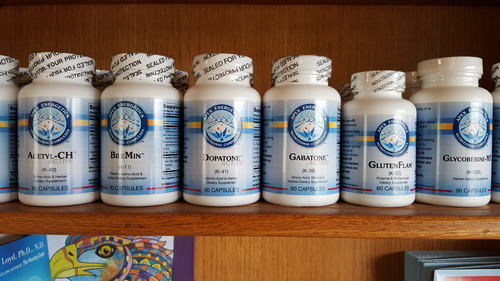 My excessively large symptom survey has sections of questions that help us pinpoint specific neurotransmitter imbalances and suggest what to do to get things back on track. We use specific combinations of amino acids, herbs, and vitamin/ mineral co-factors to address and support each neurotransmitter pathway. Check out a copy here.
My excessively large symptom survey has sections of questions that help us pinpoint specific neurotransmitter imbalances and suggest what to do to get things back on track. We use specific combinations of amino acids, herbs, and vitamin/ mineral co-factors to address and support each neurotransmitter pathway. Check out a copy here.
Next week I will discuss the single biggest thinking/feeling mistake we make that is responsible for most of our suffering in life.
Take care,
David
